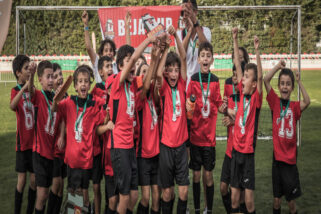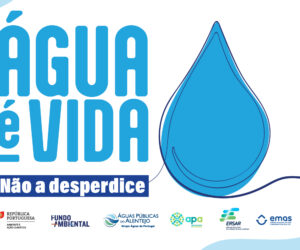In this week's article I return to the topic of the work of the Republican National Guard (GNR) in combating elder abuse, due to the JN article of the day 24 August, with the title "More than 5200 crimes of violence against the elderly registered by the GNR since 2022".
Colonel of the GNR
Master in Law and Security and Homeland Security Auditor
The JN article begins by providing information on the aging of the Portuguese population, already the third oldest country in the European Union, therefore creating more vulnerable people, due to their physical fragility, psychic or due to isolation, exposing these people to mistreatment, oftentimes, within one's own family, where drugs and unemployment help explain the phenomenon, demanding greater effort from the authorities, having the GNR registered 5.267 domestic violence crimes against elderly people over 65 year old.
To investigate this type of crime, the GNR has military personnel with specialized training., who are part of the Research and Support Center for specific victims (NIAVE), with vast experience as a result of the thousands of incidents that follow from the moment of the complaint until the trial, It constituting, most likely, in the service what knowledge do you have about the phenomenon of violence against the elderly.
In addition to this valence, GNR also has around 400 military personnel who, within the scope of proximity policing,, develop their mission by supporting the elderly, whose work is carried out all year round, in compliance with the objectives of the Support Program 65 – Safety in the Elderly, which includes information and awareness among the elderly about the safety procedures to be observed in situations of robbery or fraud, and how they can report crimes they suffer, particularly mistreatment, For this purpose, direct telephone numbers for the military are made available, thus creating trust between the GNR, the elderly and their relatives.
This Program takes into account the special vulnerability of the elderly population to crime, It is developed by GNR since 1996, based on a philosophy of preventive police action and awareness raising aimed at the elderly and the community in which they belong, with special concern for elderly people who live alone and/or isolated, so in 2011 the GNR took Operation Senior Census to the field for the first time, with a mission to combat loneliness and isolation in the elderly and prevent dangerous situations, considering your physical and/or psychological limitations, thus meriting assiduous and frequent monitoring from the GNR, further bridging all your needs, forwarding them to the institutions of the support network.
Since the first edition of Operation Censos Sénior carried out in 2011 that the GNR registers all isolated and/or alone elderly people, currently being monitored for more than 44.000 seniors, by those mentioned 400 Military, maintaining the same frequent contacts, signaling to institutions that support elderly people, those who are in situations of greater vulnerability.
In the contacts that the GNR maintains with this population, it carries out a risk assessment, and that in situations where the elderly reveals particular vulnerability, it is signaled to respective institutions, thousands of elderly people have already been flagged and some have been literally saved from an imminent tragedy.
And because these are authentic human dramas, Below are some of the situations that GNR has detected in this work, carried out to support elderly people who are alone and/or isolated, the same being real and communicated to the indicated institutions:
– “The elderly woman lives with her husband, in the middle of a forest, Both are sick and live without any sanitary conditions.” Signposted to the City Council's Social Services.
– “Bad smell in the room, demonstrating a lack of hygiene. Cohabits with animals (dogs and chickens), doing these physiological needs indoors. Does not demonstrate personal hygiene habits. Signed to City Council Social Services;
– “The elderly reveal a lack of personal and home hygiene. Cohabits with animals (gatos). Make coals outside and place them inside the house, in a brazier, next to the bed, near a gas bottle. Garbage accumulated inside the house”. Reported to Social Security;
– “The elderly person does not have family members nearby despite having two children, one of which is in Switzerland and the other has no relationship whatsoever”. Signposted to Health Services;
“The elderly live alone and in degrading conditions, giving the impression that he suffers from mental problems due to his speech. On this day, the elderly man was inside the residence inhaling butane gas., having been transported to the Health Center.” Signed to City Council Social Services;
– “Housing with bad odor due to lack of personal and housing hygiene habits. Physiological needs are made at home. Waste is on the kitchen floor, it was not possible to ascertain (due to the smell of the room) if the room was also in the same conditions.” Signed to City Council Social Services.
– “The elderly man’s house is in ruins, with part of the roof already fallen, it rains inside and there are no hygienic conditions. This home also does not have any type of light., there is only water from a well.” Signposted to Health Services;
– “The elderly woman suffers from Alzheimer’s, the husband of the elderly woman with 75 years suffers from depressive and obsessive neurosis, with phobias and fears of contamination from diseases that had not left his room for around thirty years. He was compulsorily admitted to the Hospital Center.” Signposted to the Health Service;
– “The elderly woman has already undergone surgery for a tumor in her head and sometimes has memory loss. The elderly woman also mentioned that she intended to go to a nursing home.” Signed to City Council Social Services;
– “The elderly man was found living in a house, which was in a situation of imminent collapse, lives in subhuman conditions, was in a situation of hypothermia, dirty, poorly dressed, and hungry. It was handed over to the Chamber’s Social Action Services.” Signed to City Council Social Services.
All the situations mentioned above reflect a reality that is still unknown to the majority of the Portuguese population and that the GNR has brought to light, in the role of first-line entity, therefore achieving recognition from all entities that work with the elderly, whose work of the GNR military goes far beyond what is required of them.
Note: The text constitutes the exclusive and unique opinion of its author, which only binds to this and do not reflect the opinion or position of the institution where it provides services.

























